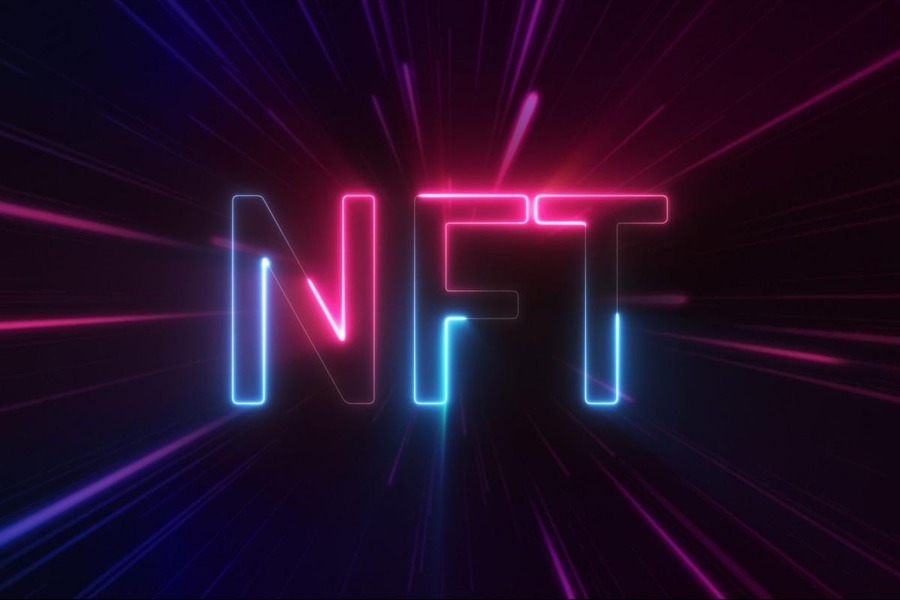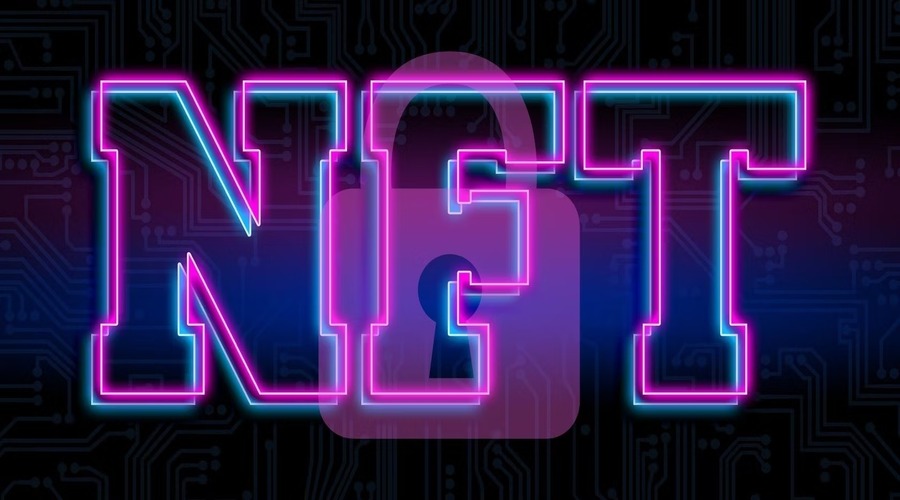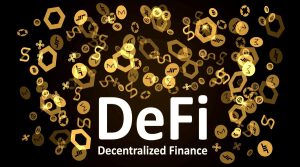NFTs, or non-fungible tokens, have gained significant popularity in recent years, especially in the gaming industry. These digital assets represent ownership or proof of authenticity of unique items, such as in-game collectibles, virtual real estate, or artwork. While NFT offers exciting opportunities for gamers and collectors, they also come with their fair share of security challenges. In this article, we will explore the key security challenges associated with NFTs in the gaming industry and discuss the measures to mitigate these risks.
Introduction to Gaming Industry
The gaming industry has witnessed a transformative impact with the introduction of NFTs. These tokens allow gamers to own, trade, and monetize virtual assets securely. NFTs leverage blockchain technology, which provides transparency, immutability, and decentralization. However, the unique characteristics of NFTs make them attractive targets for various security threats.
Overview of NFT Security Challenges
- Counterfeiting and Fraud: Counterfeiting and fraud are significant concerns in the NFT space. Due to the digital nature of NFTs, it becomes crucial to ensure their authenticity and prevent unauthorized duplication. The risk of counterfeit NFTs undermines the value and trust associated with these tokens.
- Smart Contract Vulnerabilities: Smart contracts power the functionality of NFTs, and any vulnerabilities in the code can lead to exploitation by malicious actors. Bugs or coding errors in smart contracts can result in loss of funds, unauthorized transfers, or manipulation of the asset’s properties.
- Phishing and Social Engineering Attacks: Phishing attacks and social engineering techniques pose a threat to NFT holders. Bad actors may create fake websites or social media profiles to deceive users into revealing their private keys or transferring their NFTs to fraudulent addresses.
- Centralized Storage Risks: NFTs are often stored on centralized platforms or marketplaces, which can be susceptible to security breaches. If a platform’s security is compromised, it can lead to the theft or loss of valuable NFTs.
Countermeasures for NFT Security

To address these security challenges, various countermeasures can be implemented:
- Multi-factor Authentication: Implementing multi-factor authentication adds an extra layer of security by requiring users to provide additional verification, such as a unique code or biometric data, to access their NFTs.
- Auditing and Code Review: Thoroughly auditing and reviewing the code of smart contracts can help identify vulnerabilities and ensure the integrity and security of NFTs. Code audits by independent security experts are crucial before deploying any smart contract.
- Secure Storage and Custody Solutions: Utilizing secure storage and custody solutions, such as hardware wallets or offline storage, can protect NFTs from unauthorized access or theft. Cold storage solutions keep the private keys offline, reducing the risk of online attacks.
- Education and Awareness: Educating users about best practices for NFT security is vital. Users should be cautious about sharing their private keys, avoid interacting with suspicious links or websites, and stay updated on the latest security measures and threats in the NFT space.
The Role of Blockchain Technology in NFT Security
Blockchain technology plays a fundamental role in ensuring the security of NFTs. The following aspects contribute to the overall security of NFTs:
Immutable and Transparent Nature of Blockchain
The immutable and transparent nature of blockchain technology plays a significant role in enhancing the security of NFTs in the gaming industry. When an NFT transaction is recorded on the blockchain, it becomes an immutable and tamper-proof entry that cannot be altered or modified retroactively. This provides a high level of trust and security, as the entire transaction history of an NFT is transparently available for verification.
The transparency of the blockchain allows users to validate the authenticity and ownership of NFTs. By examining the transaction history and verifying the smart contract associated with an NFT, users can ensure that the asset they are acquiring is legitimate. This transparency mitigates the risk of fraud and counterfeiting, as any attempt to create counterfeit NFTs or manipulate ownership records would be immediately detectable on the blockchain.
Decentralized Consensus Mechanisms
The decentralized consensus mechanisms employed by blockchain networks contribute to the security of NFTs in the gaming industry. In decentralized blockchain networks, transactions are verified and added to the blockchain through a consensus mechanism that involves multiple participants (nodes) reaching an agreement. This distributed and decentralized nature ensures that no single entity or central authority has control over the network, making it resilient to attacks and manipulation.
Consensus mechanisms such as proof-of-work (PoW) and proof-of-stake (PoS) are commonly used in blockchain networks. In PoW-based blockchains like Bitcoin and Ethereum, miners compete to solve complex mathematical puzzles, expending computational power and energy to validate transactions. PoS-based blockchains, on the other hand, rely on validators who hold a stake in the network and are chosen to validate transactions based on the number of tokens they hold and “stake.”
These consensus mechanisms, with their distributed and decentralized nature, make it highly unlikely for malicious actors to compromise the security of NFTs. The robustness and resiliency of blockchain networks provide a strong foundation for the secure storage and transfer of NFT assets.
Smart Contract Security
Smart contracts, which underpin the functionality of NFTs, are computer programs that automatically execute predefined actions when certain conditions are met. These smart contracts facilitate the creation, ownership transfer, and sale of NFTs in a secure and trustless manner. However, they can also introduce security vulnerabilities if not developed, audited, and implemented correctly.
Smart contract security is of utmost importance to ensure the integrity and security of NFTs. Thorough code audits, formal verification techniques, and secure development practices are essential to identify and mitigate potential vulnerabilities. Code audits involve reviewing the smart contract code to identify coding errors, bugs, or logic flaws that could be exploited by attackers. Independent security experts can conduct these audits to ensure that the smart contract meets industry best practices and security standards.
Formal verification techniques, such as mathematical proofs, can be used to formally verify the correctness and security of smart contracts. By mathematically proving that a smart contract adheres to specified properties and is free from vulnerabilities, the risk of exploitation and security breaches can be minimized.
Secure development practices, including adherence to coding standards, employing standardized libraries, and conducting comprehensive testing, also contribute to the overall security of smart contracts. Following these practices reduces the likelihood of introducing vulnerabilities that could compromise the integrity and security of NFTs.
Collaboration between Game Developers and Security Experts
To enhance NFT security, collaboration between game developers and security experts is essential. The following measures can be implemented:
- Importance of Security from the Development Phase: Incorporating security best practices from the early stages of game development helps identify and address security vulnerabilities proactively. Secure coding practices and thorough testing can prevent potential exploits.
- Security Audits and Penetration Testing: Regular security audits and penetration testing of NFT-related systems can identify weaknesses or vulnerabilities. Independent security experts can assess the security posture of the gaming platforms and recommend improvements.
- Bug Bounty Programs: Implementing bug bounty programs encourages ethical hackers to identify and report vulnerabilities in exchange for rewards. These programs incentivize the discovery and resolution of security issues before they can be exploited.
Regulatory Considerations for NFT Security
As the NFT ecosystem evolves, regulatory frameworks and compliance requirements may come into play. Legal considerations include:
- Legal Frameworks and Compliance: Regulators may introduce frameworks to address security, fraud, and consumer protection concerns related to NFTs. Compliance with these frameworks becomes necessary to ensure the legal operation of NFT platforms and marketplaces.
- KYC/AML Regulations: Know Your Customer (KYC) and Anti-Money Laundering (AML) regulations may be applicable to NFT platforms. These regulations help prevent illicit activities, such as money laundering or funding terrorism, and enhance the security of NFT transactions.
Future Trends in NFT Security
As technology advances, new trends and innovations are expected to shape the future of NFT security. Some key trends include:
- Integration of Biometrics: Biometric authentication, such as fingerprint or facial recognition, can provide enhanced security for NFT holders. Integrating biometric authentication into NFT wallets or platforms can prevent unauthorized access.
- Zero-Knowledge Proofs and Privacy Solutions: Zero-knowledge proofs and privacy-enhancing technologies allow users to prove the ownership or attributes of an NFT without revealing sensitive information. These solutions can enhance privacy and security in NFT transactions.
- Interoperability between Blockchains: Interoperability between different blockchain networks can enhance NFT security by enabling seamless and secure asset transfers between platforms. This can mitigate the risk of relying on a single blockchain network.
Conclusion
NFTs offer exciting opportunities for gamers and collectors in the gaming industry. However, it is crucial to address the security challenges associated with NFTs. By implementing countermeasures, leveraging blockchain technology, fostering collaboration between game developers and security experts, and considering regulatory frameworks, the gaming industry can enhance NFT security. The future of NFT security holds promising trends that aim to provide even stronger protection for NFT holders and investors.
FAQs
1. How can I protect my NFT investments from fraud?
To protect your NFT investments from fraud, you should practice secure storage of your private keys, enable multi-factor authentication, and verify the authenticity of NFT marketplaces or platforms before making any transactions.
2. Are there any regulations governing NFT security?
Regulatory frameworks and compliance requirements may vary depending on the jurisdiction. It is essential to stay informed about any applicable legal frameworks, including KYC/AML regulations, to ensure compliance with the law.
3. What are the common vulnerabilities in NFT smart contracts?
Common vulnerabilities in NFT smart contracts include coding errors, reentrancy attacks, and unchecked external calls. Regular code audits, testing, and secure development practices can help mitigate these vulnerabilities.
4. Can NFTs be stolen or hacked?
While blockchain technology provides inherent security, NFTs can still be susceptible to theft or hacking if users’ private keys are compromised or if centralized platforms experience security breaches. Implementing secure storage solutions and following best security practices can minimize these risks.
5. What is the future outlook for NFT security?
The future of NFT security looks promising with the integration of biometrics, privacy-enhancing technologies, and interoperability between blockchains. These advancements aim to provide stronger security measures and protect the interests of NFT holders and investors.



